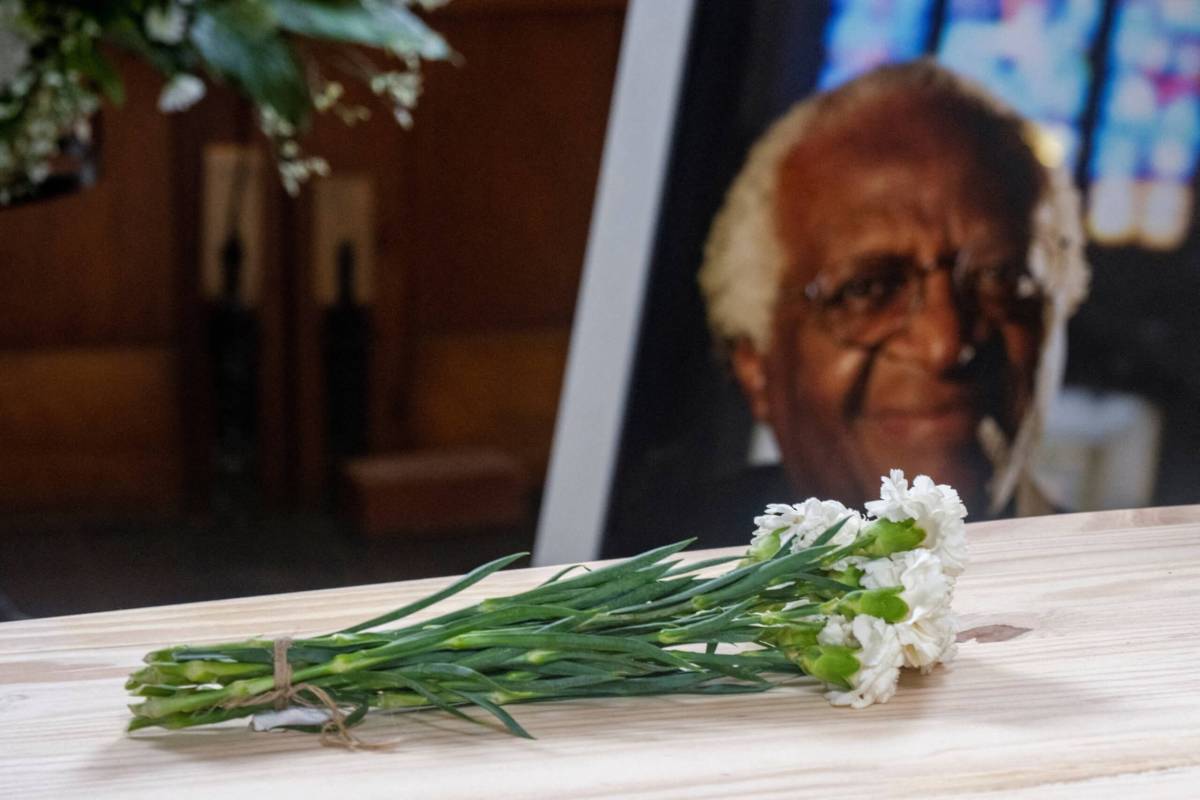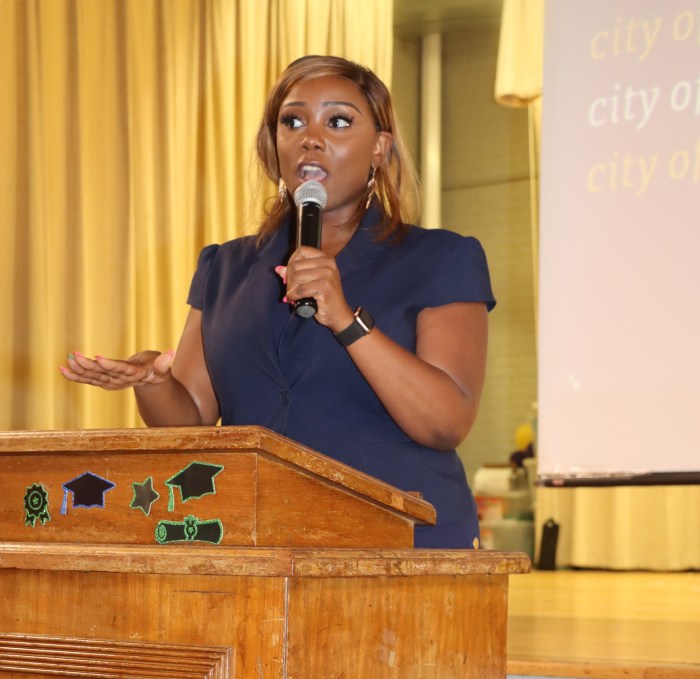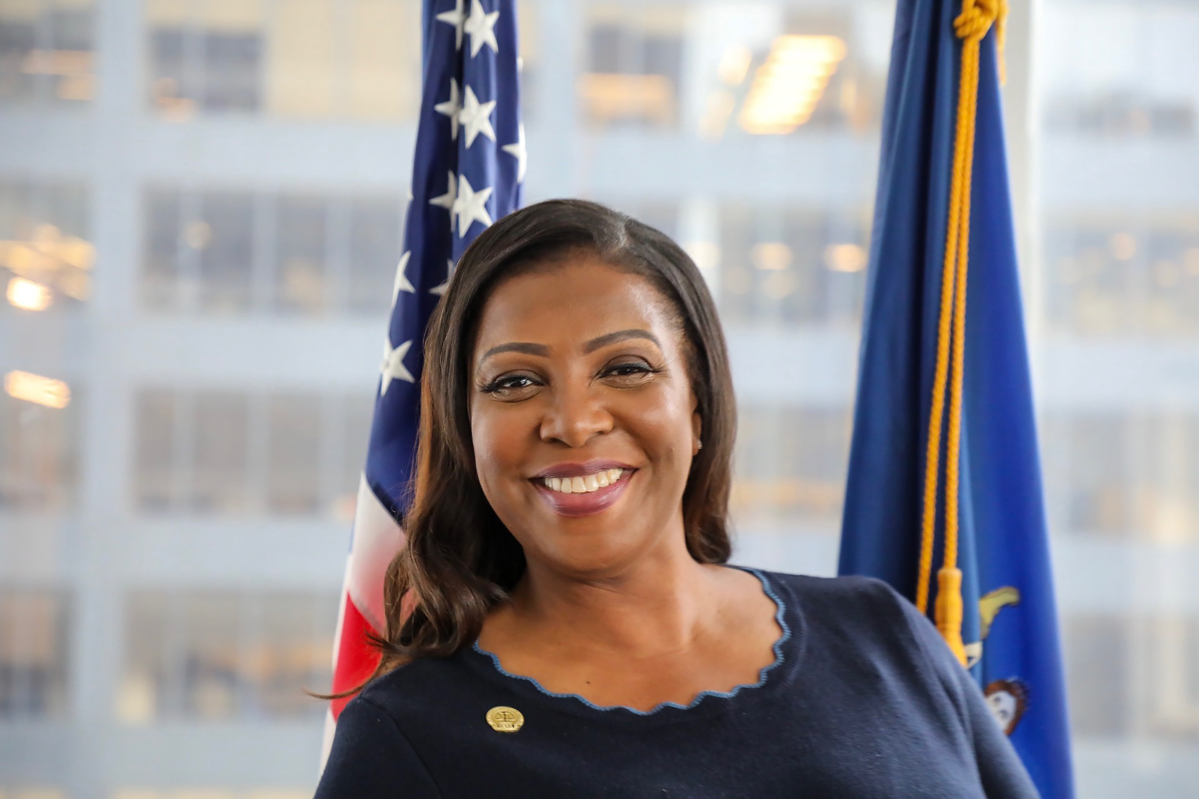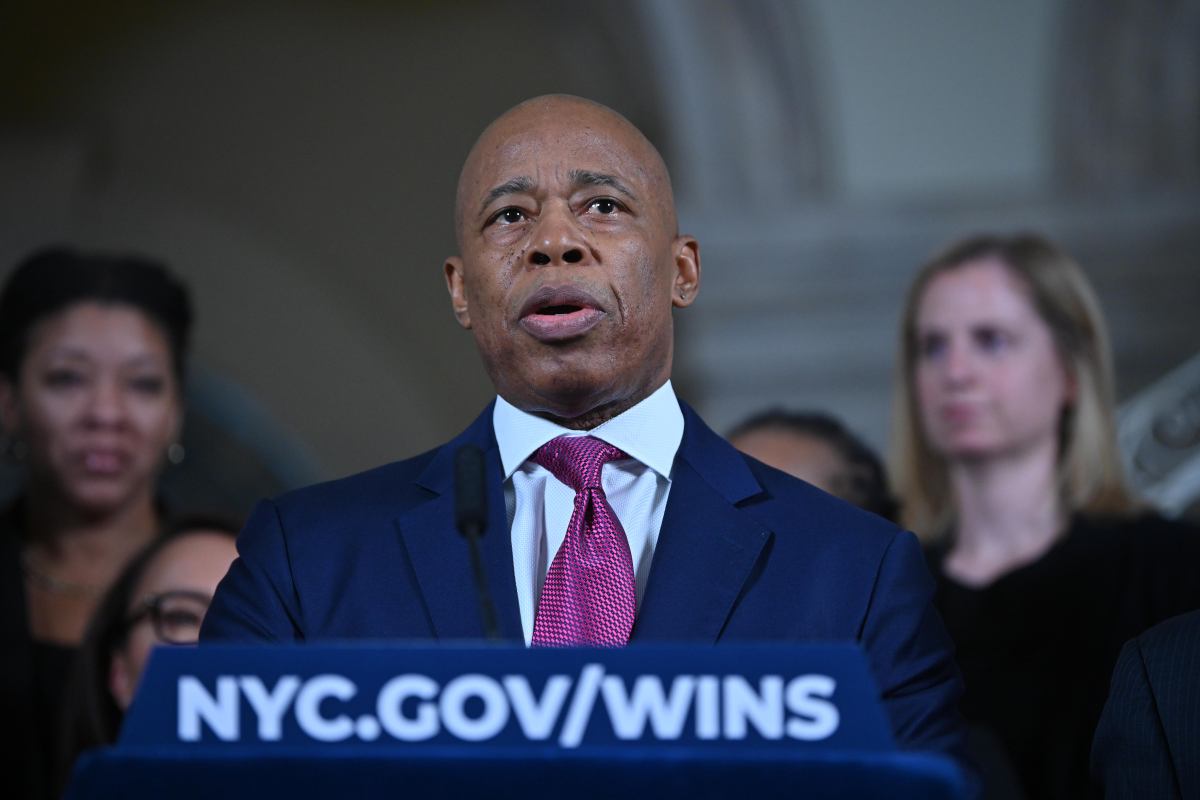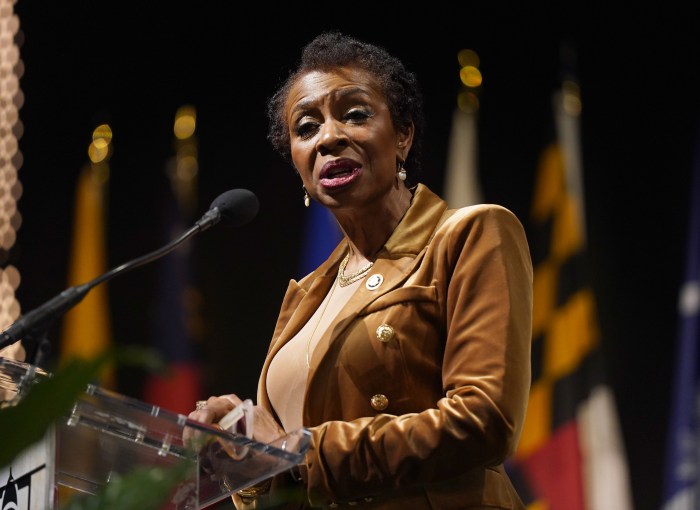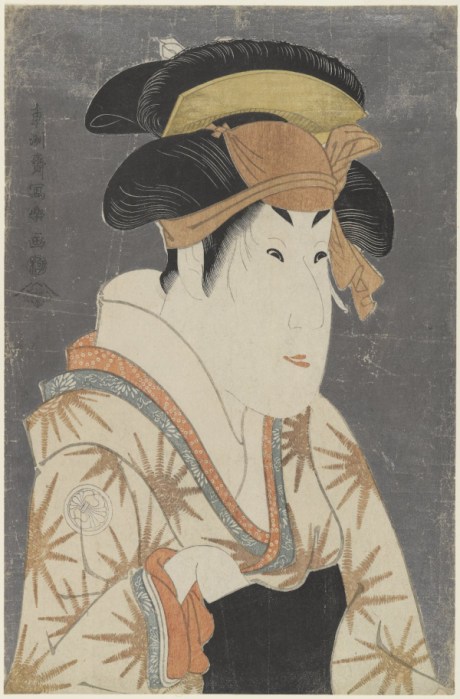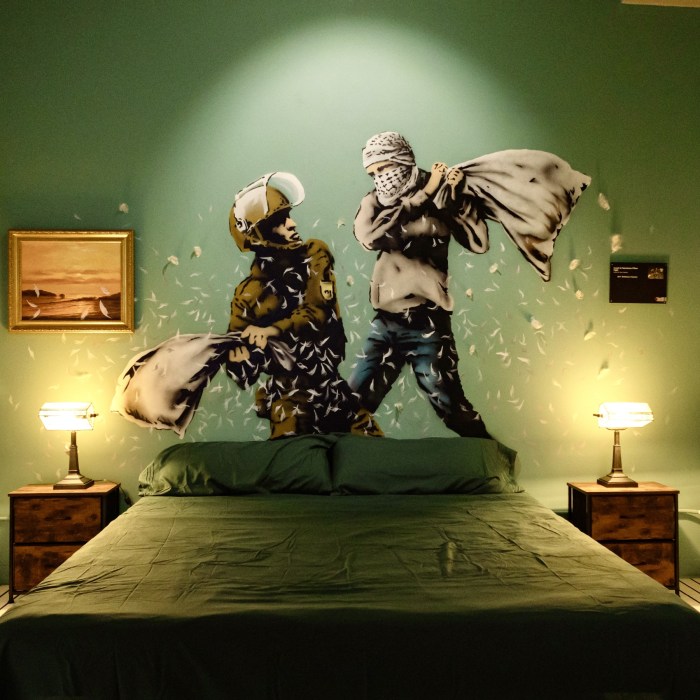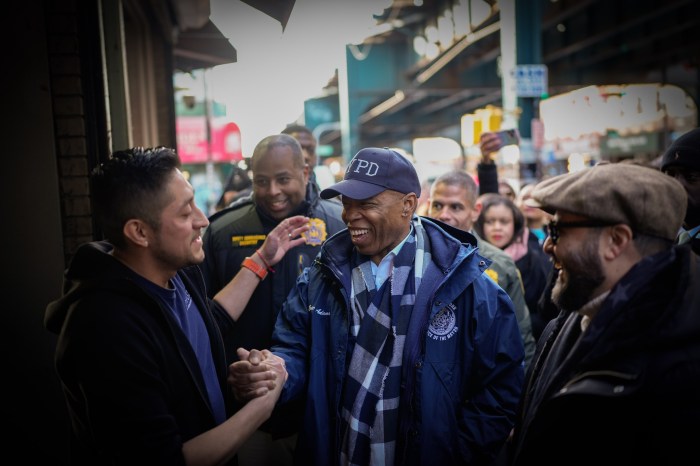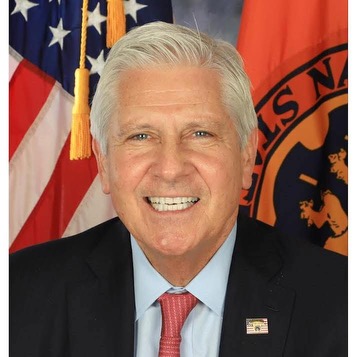Two Democratic Caribbean legislators in Brooklyn recently paid tribute to the late Nobel Peace Prize-winning Anglican cleric of South Africa, Archbishop Desmond M. Tutu, whose civil and human rights work helped to end apartheid, or the system of racial separateness, in South Africa.
In describing Archbishop Tutu as “a patriot without equal,” South African President Cyril Ramaphosa confirmed his death on Dec. 26. Archbishop Tutu was 90.
Caribbean American Congresswoman Yvette D. Clarke, the daughter of Jamaican immigrants, said Tutu was “the global ambassador of humanity and human rights.”
And New York City Councilman Haitian-born Dr. Mathieu Eugene described Tutu as “a true spiritual icon.”
“Archbishop Desmond Tutu was the global ambassador of humanity and human rights who helped usher in an era that united the world in a common cause: ending apartheid in South Africa,” Clarke, who represents the primarily Caribbean 9th Congressional District in Brooklyn, told Caribbean Life. “What a great loss for the world and mankind!”
The congresswoman said the 1984 Nobel Peace Prize winner was the Commencement Speaker at her graduation from Oberlin College, a private liberal arts college and conservatory of music in Oberlin, Ohio.
She said Tutu was “a leader and true inspiration in the Global Racial Justice movement.
“I have powerful and indelible memories of Archbishop Tutu’s passion for justice as Commencement Speaker,” added Clarke, chair of the US Congressional Black Caucus Taskforce on Immigration; a senior member of the US House of Representatives’ Energy and Commerce Committee; and chair of the Cybersecurity, Infrastructure Protection and Innovation Subcommittee of the House Committee on Homeland Security.
“This would be the first of several encounters with him over the years,” she continued. “He was truly an inspiring leader.
“He is leaving behind a legacy that will not only shape generations to come but continue to be transformative, as we advance the movement for a more just and equitable world,” Clarke said.
Dr. Eugene, the first Haitian to be elected to New York City Council, noted that Archbishop Tutu was “a leader in the anti-apartheid movement, and a true spiritual icon who, despite many obstacles, dedicated his life to the fight for freedom and justice for all of humanity.
“Bishop Tutu will be remembered as a tireless advocate and voice for those who lived under systematic oppression, and a trusted source of wisdom who understood the need for unity and peace in the face of intolerance and discrimination,” said Eugene, representative for the predominantly Caribbean 40th Council District in Brooklyn.
“His legacy will live on in all who believes in the value of partnerships and respect that help us work together towards the common good as human beings,” he told Caribbean Life. “May God bless his family during this very difficult time.”
New York City Mayor-elect Elect Eric Adams, who will assume office on Jan. 1, said the passing of Archbishop Tutu is “a heartbreaking loss for our global community.
“A champion of civil rights whose voice brought down apartheid in South Africa and advanced the fight for human and economic justice throughout the world, Archbishop Tutu’s advocacy resonated across generations, cultures and communities,” said Adams, who will become the second Black Mayor of New York City after the first, the late David Dinkins.
“His lessons of love, justice and empowerment have personally inspired me throughout my journey as a public servant,” added Adams, the incumbent Brooklyn Borough President.
“One quote of his in particular always stays with me: ‘There comes a point where we need to stop just pulling people out of the river. We need to go upstream and find out why they’re falling in,’” Adams continued.
United States President Joe Biden and First Lady Jill Biden said in a White House statement that they were “heartbroken” to learn on, “this morning after Christmas”, the passing of “a true servant of God and of the people.”
The Bidens said they were “blessed” to spend time with Archbishop Tutu on several occasions over the past many years.
“His courage and moral clarity helped inspire our commitment to change American policy toward the repressive Apartheid regime in South Africa,” they said. “We felt his warmth and joy when we visited him during the 2010 World Cup that celebrated the diversity and beauty of his beloved nation.
“And, just a few months ago, we joined the world in celebrating his 90th birthday and reflecting on the power of his message of justice, equality, truth and reconciliation, as we confront racism and extremism in our time today,” the Bidens continued.
Born to a school teacher and a laundress, and into poverty and entrenched racial segregation, “Desmond Tutu followed his spiritual calling to create a better, freer and more equal world,” they said.
“His legacy transcends borders and will echo throughout the ages,” the Bidens added.
Ramaphosa said in a statement that Archbishop Tutu, who was ill for many years, was “a man of extraordinary intellect, integrity and invincibility against the forces of apartheid.”
“He was also tender and vulnerable in his compassion for those who had suffered oppression, injustice and violence under apartheid, and oppressed and downtrodden people around the world,” Ramaphosa added.


